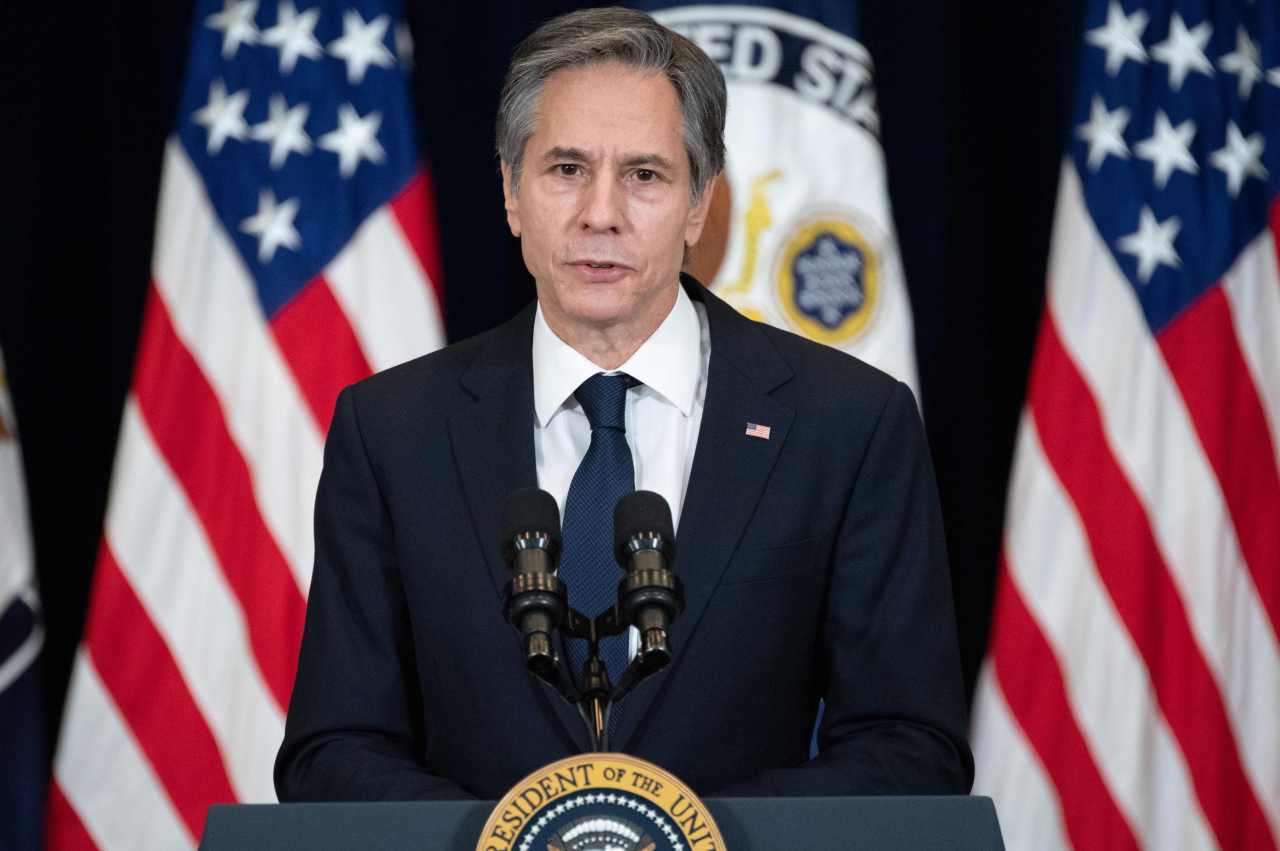 |
In this file photo taken on February 04, 2021 US Secretary of State Antony Blinken speaks to staff at the US State Department during the first visit of US President Joe Biden in Washington, DC. (AFP-Yonhap) |
US Secretary of State Antony Blinken has agreed to regularly meet with his counterparts from three other countries that form a regional forum known as the Quad, the State Department said Thursday.
The agreement was made in a virtual meeting that included Australian Foreign Minister Marise Payne, Indian Minister of External Affairs S. Jaishankar and Japanese Foreign Minister Toshimitsu Motegi.
"They reiterated their commitment to the Quad meeting at least annually at the ministerial level and on a regular basis at senior and working levels to strengthen cooperation on advancing a free and open Indo-Pacific region, including support for freedom of navigation and territorial integrity," the department said in a press release.
The meeting marked the first of its kind since Blinken took office late last month.
Under the former Trump administration, the informal grouping of the four countries was widely viewed as an anti-China coalition, while the former US administration had strongly urged other US allies and partners, such as South Korea and Vietnam, to join what it called efforts to counter Chinese aggression on every front.
The new Biden administration has markedly toned down US rhetoric against China, but agrees the countries are in a great competition.
Blinken earlier said the biggest advantage the US has over its competitors such as China and Russia is its alliances.
At Thursday's meeting, Blinken and his counterparts from the three other countries discussed their cooperation on various global and regional issues.
"The Ministers discussed Quadrilateral ('Quad') cooperation on COVID-19 response and recovery and climate change and committed to working together to address these global challenges," the State Department said.
"The Ministers also discussed countering disinformation, counterterrorism, maritime security, the urgent need to restore the democratically elected government in Burma, and the priority of strengthening democratic resilience in the broader region," it added. (Yonhap)





![[Exclusive] Hyundai Mobis eyes closer ties with BYD](http://res.heraldm.com/phpwas/restmb_idxmake.php?idx=644&simg=/content/image/2024/11/25/20241125050044_0.jpg)
![[Herald Review] 'Gangnam B-Side' combines social realism with masterful suspense, performance](http://res.heraldm.com/phpwas/restmb_idxmake.php?idx=644&simg=/content/image/2024/11/25/20241125050072_0.jpg)

